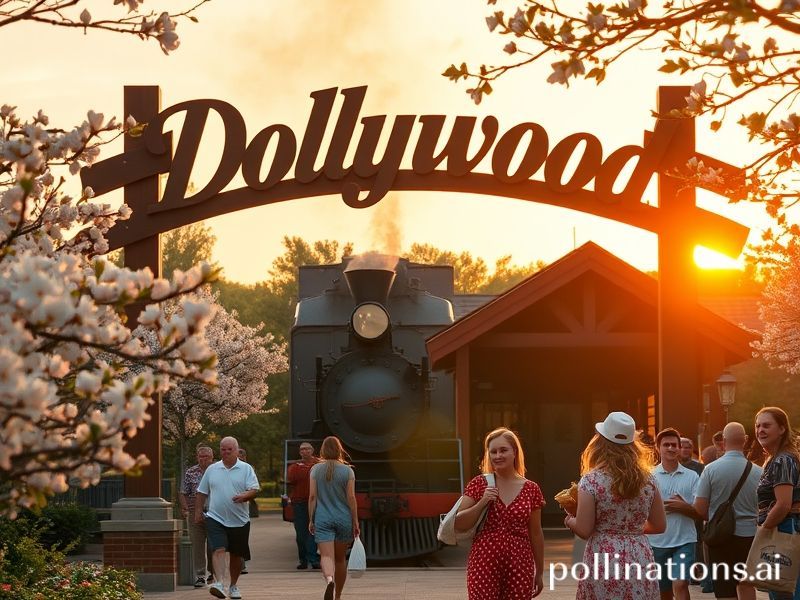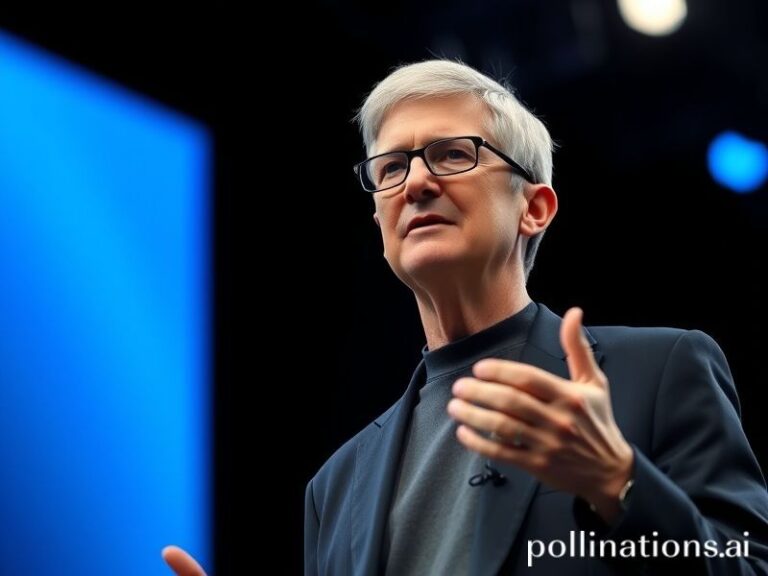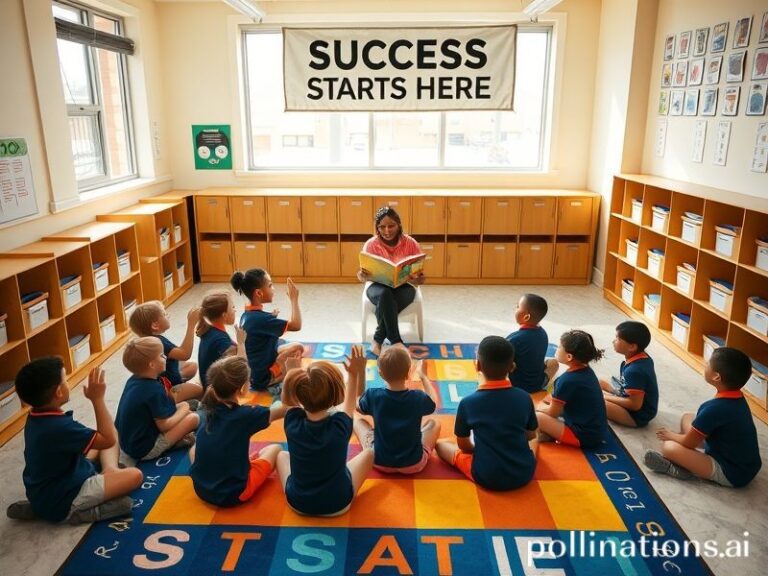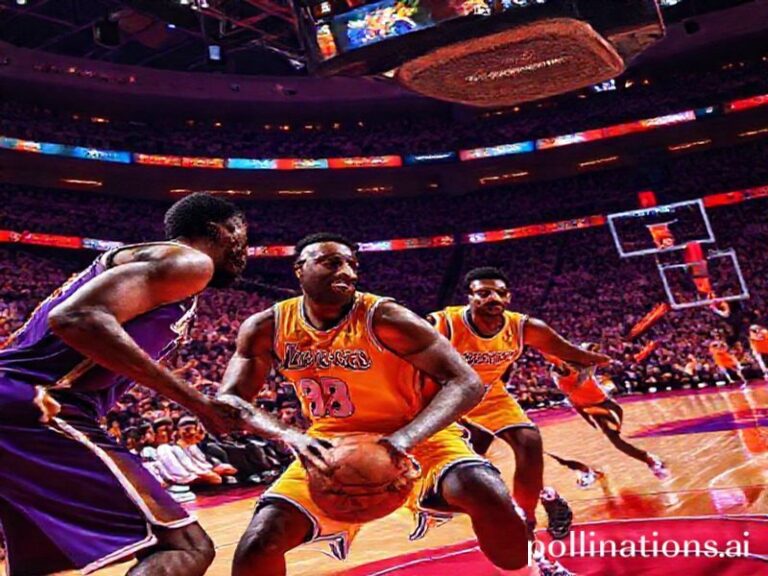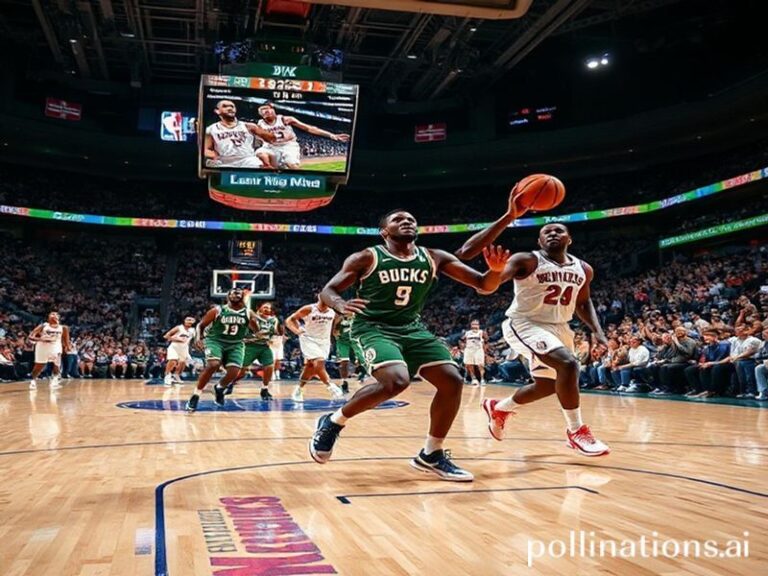From Sequins to Statecraft: How Dollywood Became the World’s Most Absurd Soft-Power Superpower
Dollywood, Tennessee – Population: the planet, apparently. While the Smoky Mountains hum with banjos and the scent of funnel cake, the rest of us are left to wonder how a theme park carved out of Dolly Parton’s eyelash extensions became a geopolitical litmus test. From Berlin to Beijing, the name “Dollywood” now pings across algorithms with the same urgency as “supply-chain bottleneck” or “crypto collapse,” only with 30% more rhinestones and 100% more existential dread.
The park, nestled in Pigeon Forge like a sequined carbuncle on Appalachia’s backside, attracts 3 million pilgrims a year—roughly the annual emigration rate from Venezuela, give or take a few hundred thousand desperate souls. Analysts at the OECD, presumably between sips of overpriced espresso, have started citing Dollywood attendance as a contrarian economic indicator: when middle-class families can still afford the $89 gate fee plus $17 for a commemorative mason jar of “moonshine” that is 90% corn syrup, global recession may yet be postponed.
Europeans, who traditionally vacation by colonizing each other’s coastlines, now arrive in chartered buses to witness American pathos packaged as entertainment. They leave clutching pink feather boas and a newfound understanding that irony is not a continental export but a raw Tennessee resource. Meanwhile, Japanese travel agencies advertise “Kawaii Dollywood” packages, promising bullet-train efficiency applied to the art of queuing for a roller coaster shaped like a church pew. It’s soft power by way of saccharine gospel brunch: if you can’t beat the hegemon, join the conga line to the Dolly Parton Experience™.
The carbon footprint alone deserves its own Security Council resolution. Every jumbo jet that lands in Knoxville so a Milanese influencer can vlog the cinnamon-bread queue emits more CO₂ than Tuvalu manages in a fiscal year. Greta Thunberg retweeted the park’s solar-panel announcement with a single emoji—🤡—which the Dollywood communications team promptly printed on tote bags and sold out within hours. Late-stage capitalism: 1, planetary survival: still waiting in line.
But the real magic lies in the park’s diplomatic utility. Earlier this year, a back-channel delegation from Pyongyang toured undercover, baseball caps pulled low, taking feverish notes on crowd control and choreographed joy. Three months later, Kim Jong-un unveiled the Masikryong Ski Resort’s new “Patriotic Pancake Pavilion,” suspiciously reminiscent of Aunt Granny’s Restaurant. Somewhere in Stockholm, the Nobel Committee felt a disturbance in the force but couldn’t quite place it.
Back home, Dollywood functions as America’s mirror, only fun-house. The same day Senate hearings debated insulin pricing, the park premiered a $24 million dark ride where animatronic woodland creatures sing about the healing power of generosity—sponsored by a pharmaceutical conglomerate. Visitors exit through a gift shop stocked with insulin-themed plushies; they giggle, purchase, and forget, which is basically the national motto in fleece form.
Economists note that the park’s wages, while above federal minimum, still qualify employees for Medicaid—an economic ouroboros in which the state subsidizes the labor that subsidizes the illusion that the state is unnecessary. Meanwhile, TikTok teenagers film themselves crying in front of the Chasing Rainbows museum, hashtagging #goals next to footage of undocumented janitors resetting trash cans for the next wave of dreamers. The algorithm, impartial as a firing squad, rewards both.
As dusk settles over the Smokies, fireworks erupt nightly—chemical blossoms timed to a medley of “9 to 5” and “Jolene,” because nothing says international harmony like choreographed explosions celebrating a woman who once turned down Elvis. The smoke drifts eastward, crosses the Atlantic, and somewhere in Brussels a bureaucrat breathes in trace glitter and files another climate report no one will read.
In the end, Dollywood is neither theme park nor cathedral but a planetary Rorschach test: we see whatever our GDP allows. Whether it’s salvation, satire, or simply somewhere to park the kids while the world burns, Dolly’s got a season pass—and she takes Visa, Mastercard, or the lingering hope that somewhere, somehow, the ride never has to end.

